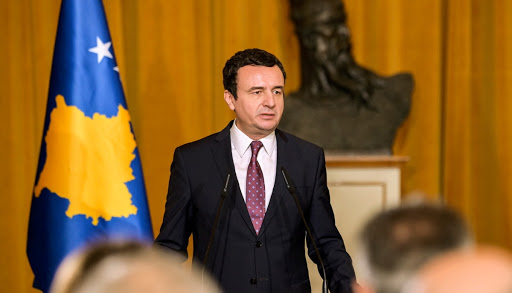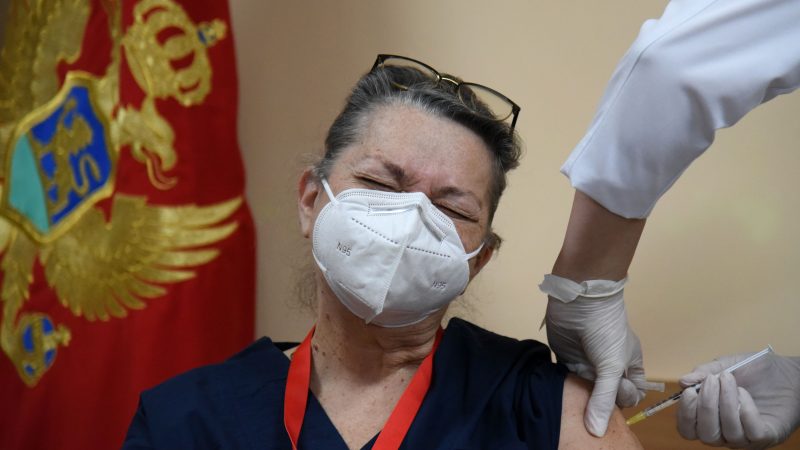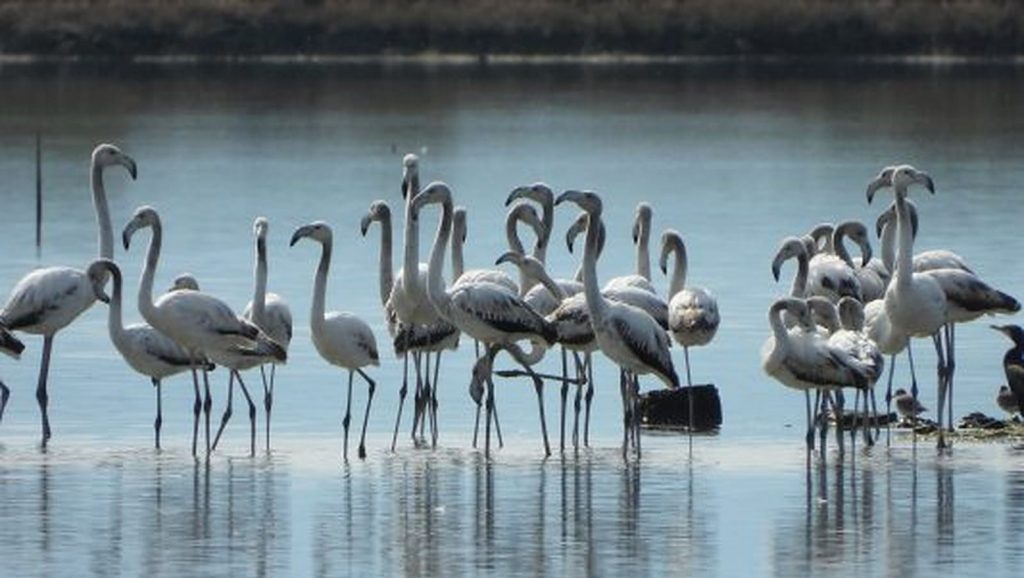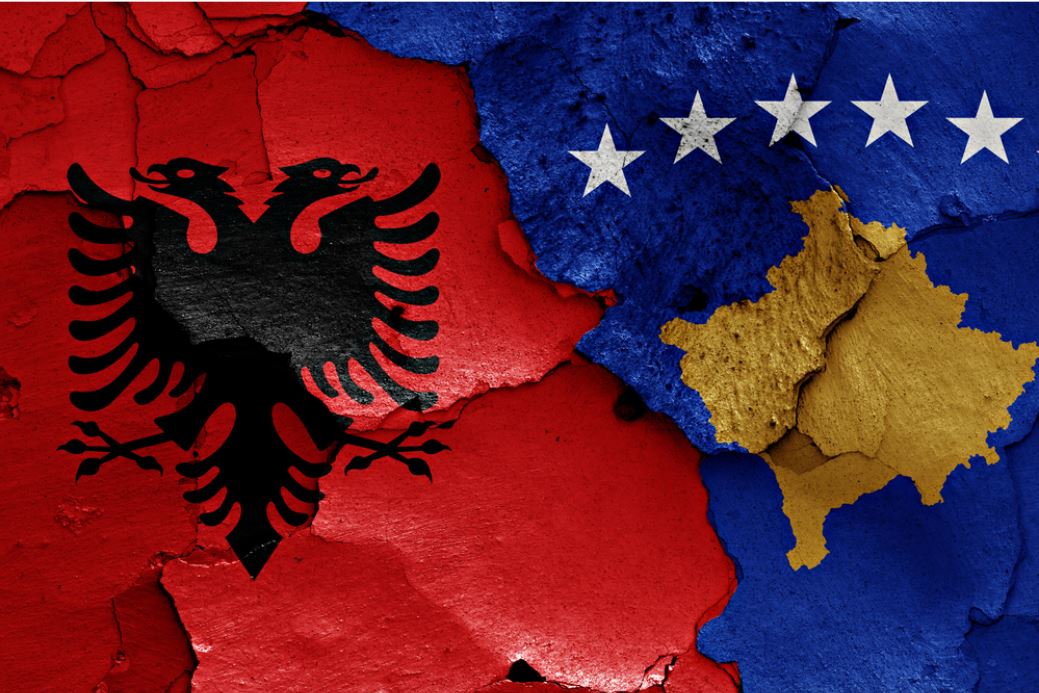Press Reviews
March 2021
International Media Digest
WHAT THE EU CAN DO FOR THE WESTERN BALKANS
After Merkel, only Macron?
With the imminent departure from German and European politics of Angel Merkel, who does not seek a fifth term as Chancellor, the only EU leader who can re-energize the EU action in the Western Balkans should be the French President Emmanuel Macron, the European Council on Foreign Relations (ECFR) stresses in a recent analysis.
He has shown a commitment to stabilize the region, increasing the French role in the lengthy Serbia–Kosovo dispute and pushing for a recalibration of the EU enlargement strategy, now more focussed on political aspects. Yet Macron is also the one who blocked the opening of EU accession talks for Albanian and North Macedonia, with an unprecedented veto. His moves have sparked both expectations and frustrations across the WB6 (Western Balkans 6).
In order to avoid discontent, the ECFR suggests he invests more in Europe’s role in the security of the Western Balkans, if he “wants to stay loyal in his pursuit of European strategic autonomy”.
Brain Drain from the Balkans, a Burden that Europe Must Share
Since the outbreak of the Yugoslav wars in 1991, thirty years ago, 4,4 million people have left the region according to the World Bank. Most of them have moved to Western Europe, in particular to Germany, its powerhouse.
Workers from the Western Balkans contribute to Western Europe’s economy a lot and keep the pension system sustainable. On the other hand, migration has caused a severe disruption in the Western Balkans. The lack of doctors, IT specialists, designers and specialized workers is pushing the socio-economic environment to the verge of collapse. Disparities between the EU and the Western Balkans are widening. Thus, Brussels “must take responsibility as the key beneficiary of such brain drain and share the burden of finding a solution”, writes Allison Carragher for Carnegie Europe.
VACCINES: SERBIA HAS A PLAN
The vaccination campaign has sped up in Serbia. One third of the population has already received the first dose. Only four countries in the world have a faster pace: Israel, the United Arab Emirates, UK and USA.
Belgrade’s success depends largely on Russia and China, which have supplied the Balkan country with vaccines: a geopolitical move to increase leverage and a blow to the EU. As we remarked in our previous edition, despite a recent surge in the effort to support the vaccination campaign across the region, Brussels has not yet delivered enough results in the Western Balkans, hit hard by the third wave of the pandemic.
Russia and China want even more. They have outlined a strategy to turn Serbia into a hub to produce their vaccines. After having announced a deal with the Russian authorities in February, Belgrade has recently unveiled a plan to produce the Chinese vaccine jointly with UAE, Balkan Insight reported on March 12.
The strategy of President Aleksandar Vucic, the undisputed leader of the country, has three dimensions. First, he continues playing the traditional multipolar foreign policy. Secondly, he hopes to reach herd immunity soon in order to play such success as an electoral card in 2022. The country will hold presidential, parliamentary and municipal elections in Belgrade simultaneously. Finally, yet importantly, Serbia is delivering quotas of vaccines to neighbours, where the pace of the vaccination programmes is very slow. A gesture of friendship, but also a chance to beef up its status as the regional power.
Bosnia and Herzegovina, among the beneficiaries of Serbia’s donations, is the country that faces the most acute health crisis now. Infections and deaths are rapidly increasing, and hospitals in Sarajevo are on the verge of collapse, the Italian website Osservatorio Balcani e Caucaso tells.
Further News and Views

Albin Kurti is the New Prime Minister of Kosovo
The newly elected parliament in Kosovo met for the first time on March 22. As expected, Albin Kurti was appointed Prime Minister, 67–30. MPs representing non-Serb minorities backed him. The Srpska Lista, the only Serbian party in the assembly, rejected Kurti’s candidacy. The next crucial test in Kosovo will be the parliamentary vote for President of the Republic. It will take place within one month. Vjosa Osmani, Kurti’s main ally, is the frontrunner.
Radio Free Europe/Radio Liberty, March 22

EU and NATO to Help Montenegro to Fight the Pandemic
Last summer the Montenegrin Government announced with great fanfare that the country was virus-free. The scenario has dramatically changed since then. Now, the tiny Balkan republic has one of the world’s worst Covid-19 death rates. The new government, a coalition between pro-Serb and civic oriented parties, appealed to the European Union and NATO to send medical workers to help the beleaguered health services to tackle the awful situation.
Euractiv, March 10

Plans to Build an Airport in Albania Threatens Migrating Bird Flyways
Euronews reported on a controversial government plan to build an international airport and a complex of hotels and marinas around the Narta Lagoon, a protected zone in southern Albania known for hosting migratory birds travelling between Europe and Africa. The plan is set to support the tourism industry, a key asset for Albania’s development, but environmentalists protest.
Euronews, March 12

In North Macedonia, the Government Postponed the Census Due to the Health Crisis
Holding a census in the Western Balkans has always been a political dilemma due to ethnic and cultural rifts. North Macedonia is not an exception. The Government stresses that the process to count the population, the first in 20 years, set to start in April, is crucial to outline a strategy for development, identifying regions with the most fragile socio-economic environment. Yet, the nationalistic opposition, fearing that the census could end in a surge of the Albanian minority, has invited citizens to boycott it, BNE Intellinews reported on March 4. But the dispute is over, at least for some months. The Government and the opposition have agreed to postpone the census until September due to the rapid spread of the coronavirus and a lack of vaccines.
Associated Press,March 29
Monthly Analysis
THE ALBANIAN COMMON STATE:
MYTHS AND PERSPECTIVES

In a recent interview with Euronews, Albin Kurti, the winner of parliamentary elections in Kosovo on the 14th of February, said that he would back the unification of Albania and Kosovo, should a referendum be held in the future on this matter.
His words re-ignited an issue that has always been present in the agendas of Pristina and Tirana. Kurti has been campaigning for reunification for a long time. The former Prime Minister of Kosovo, Ramush Haradinaj, stressed in the past that he is open to such an idea. The same goes for the former President Hashim Thaci and the current Prime Minister of Albania, Edi Rama, who once said that the question of the unification is unavoidable in the future. Public opinion in both the countries supports the unification, too.
A new Albanian state would count almost 5 million citizens and would become the second political power in the region, challenging the Serbian dominance. This is a strategic gain for both Albania and Kosovo. Yet it is Pristina that could reap more advantages. A joint state would mean, in principle and notwithstanding real diplomatic issues with non-recognising allies, getting NATO protection (Albania joined the Alliance in 2009) and overcoming Serbia’s attempt to block the recognition process through Russia and China’s support at the UN Security Council.
What’s more, Kosovo has a growing demographic trend, while Albania’s population is shrinking due to emigration. Kosovo can challenge Tirana’s role as the main engine of the union in the long term.
Next, the cost of unification BNE Intellinews estimates, could be $16 billion. Collecting resources to afford such a price is almost a mission impossible: Tirana and Pristina have very fragile economies with many Achilles’ heels. Not to mention the fact that citizens in both countries are not very keen to accept a would-be unification tax, as public opinion polls show.
The birth of a joint Albanian state could also spark territorial changes in the region. Serbia, which opposes unification between Pristina and Tirana, would try to seize Northern Kosovo, mainly inhabited by Serbs and still largely controlled by Belgrade, as well as to strengthen relations with Serbs in Montenegro and in Bosnia and Herzegovina, to counter the increased Albanian weight on Europe’s south-eastern periphery. It would mean opening a Pandora’s box, with unpredictable consequences that NATO and the EU would not appreciate.
Ultimately, Kurti’s recent interview with Euronews should not be taken as an alarming message. It mainly sounds like a card to force Serbia to integrate Northern Kosovo into Pristina’s structures and Europe to support more Kosovo’s Euro-Atlantic ambitions. The unification between Albania and Kosovo seems unlikely in the near future.
Sources: Euronews, Open Democracy, BNE Intellinews, Harvard Political Review
The Insight Angle

SONJA RISTESKA
Project Manager for Southeast Europe,
AGORA ENERGIEWENDE (Berlin)
Curbing emissions, investing in renewable sources, making cities smarter and more sustainable: the EU is strongly committed to the energy transition, making it the driving factor of its agenda. What about the Western Balkans? Is the region aligning with Brussels? To get a panorama on the scenario in the WB6 we reached Sonja Risteska, project manager for Southeast Europe at Agora Energiewende, a Berlin based think tank promoting clean energy transition in Germany, Europe and the rest of the world.
NGOs, researchers, analysts and journalists often remark that in terms of achievements in the energy transition, the region lags behind. Are you also a bit pessimistic?
Unfortunately, the Western Balkans have not yet established a timeline to reduce emissions and phase out coal, as happened in the EU, which has outlined clear targets by 2030. There is a reluctance even to put a plan in place and then work for its implementation.
Why?
The transformation from the socialist system to the free market takes longer than expected. The coal sector is old, but still strong. It is also an electoral asset. Ruling élites want to keep it alive to avoid layoffs, thus political and social problems.
That is why China’s investments in lignite plants across the region are so welcomed…
Exactly. Actually, Beijing could divert investments from fossil to renewable sources, which is what it is doing at home. This could boost energy transition in the Western Balkans, creating new opportunities. Yet political leaders in the region do not want to see this potential.
How could the EU trigger a change of pace?
The accession process is frozen, and France and Germany do not find a joint vision on the Western Balkan’s future. As a consequence, the carrot-and-stick scheme for the region has gone. The EU does not offer a strong perspective anymore which is why it cannot press governments to refuse China’s money. However, the EU is the main trading partner and investor for each of the WB6, so it should provide more grants and put mechanisms in place to reduce risks for investments in the renewables. There is a lot of untapped potential in the region, with many companies ready to explore it.
Finally, grants should also be channelled towards civic groups, who can contribute a lot to change the pattern. There are movements in the Western Balkans advocating energy transitions, fighting against damaging hydropower plants and big interests behind certain energy projects. In some cases, investments have been dropped.

Matteo Tacconi
Journalist and analyst, he covers the Balkans for a wide range of media networks. He worked as electoral observer for the OSCE/ODIHR in Albania, North Macedonia, Russia, Georgia and Ukraine.

